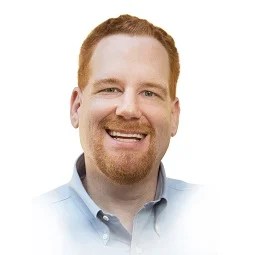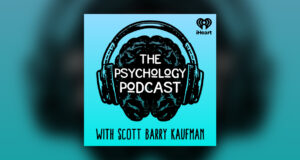
Jessi Gold, MD, MS, is the Chief Wellness Officer of the University of Tennessee
System and an associate professor in the Department of Psychiatry at the University of
Tennessee Health Science Center. This inaugural leadership position encompasses all
five University of Tennessee campuses, UT Knoxville, UT Chattanooga, UT Southern,
UT Martin, and UT Health Science Center, and includes up about 59,000 students and
19,0000 faculty and staff. In her clinical practice, she sees healthcare workers, trainees,
and young adults in college.
Dr. Gold is also a fierce mental health advocate and highly sought-after expert in the
media on everything from burnout to celebrity self-disclosure. She has written widely for
the popular press, including for The New York Times, The Atlantic, InStyle, Slate,
and Self. Her first book, “HOW DO YOU FEEL? One Doctor’s Search for Humanity in
Medicine” is out available now from Simon Element. A graduate of the University of Pennsylvania (with a degree in anthropology), the Yale School of Medicine, and the Stanford University Department of Psychiatry, she spends her free time traveling with her friends, watching live music (especially Taylor Swift) or mindless television, and on walks with her dog, Winnie. Find her on X, Instagram, TikTok, or Threads @DrJessiGold.

Our host, Gabe Howard, is an award-winning writer and speaker who lives with bipolar disorder. He is the author of the popular book, “Mental Illness is an Asshole and other Observations,” available from Amazon; signed copies are also available directly from the author.
Gabe makes his home in the suburbs of Columbus, Ohio. He lives with his supportive wife, Kendall, and a Miniature Schnauzer dog that he never wanted, but now can’t imagine life without.
To book Gabe for your next event or learn more about him, please visit gabehoward.com.
Producer’s Note: Please be mindful that this transcript has been computer generated and therefore may contain inaccuracies and grammar errors. Thank you.
Announcer: You’re listening to Inside Mental Health: A Psych Central Podcast where experts share experiences and the latest thinking on mental health and psychology. Here’s your host, Gabe Howard.
Gabe Howard: Hey everybody, and welcome to the podcast. I’m your host, Gabe Howard. With us live in studio today is Dr. Jessi Gold. Dr. Gold is the author of the new book, “How Do You Feel?,” which explores the challenges of caring for yourself when you care for other people. Dr. Gold, welcome to the show.
Jessi Gold, MD, MS: Thanks for having me. And please call me Jessi.
Gabe Howard: Aww, Jessi, thank you so much. You know, when you reached out to me, you really grabbed my attention because you said mental health care workers like therapists, psychologists and psychiatrists are experiencing mental health crises and burnout at an alarming rate. And I immediately thought to myself, well, now wait a minute. If the fire station catches on fire, who do the firefighters call? What’s happening here?
Jessi Gold, MD, MS: Yeah. What if the answer is the firefighters call more firefighters? I think that, yeah, I think. [Laughter]
Gabe Howard: Well, but. But is that the answer thought? Not even being funny. Like they would have to just call like another substation?
Jessi Gold, MD, MS: Yeah. There’s like this. I mean, my therapist calls it a train of therapists, but I don’t know who the master of the train is, right? It has to end somewhere. But there’s like, you know, one person helps another person and that they help another person. And it kind of goes back. And so all of us seem to turn to our colleagues for support, which is challenging when our colleagues are also burning out and stressed out and dealing with the work. I think in our field especially, we like to pretend it’s not hard because we don’t have long hours all the time, but we do a lot that is emotionally challenging. And for some reason in training we talk about it, but probably not enough, and we kind of blow it off like, oh, emotions. Even though we are people who deal in emotions. And I think that that makes it hard in a lot of ways to even admit that you have anything going on because you’re listening to people who have harder stuff in our mind going on. And we also do a lot of comparison where we go, oh, well, I can’t say I’m tired just because work is hard when my patient has trauma since they were three.
Gabe Howard: You use the word annoying, right? I got I get annoyed too, right? Everybody gets annoyed. I get annoyed at my wife and I love her. I get annoyed at my mother and I love her. I get annoyed at my grandmother and she’s my favorite person in the whole wide world. So I get annoyance. But is annoyance the same as burnout? Or is that just the human condition?
Jessi Gold, MD, MS: Just the human. I mean, so burnout is one of those words, like so much in mental health that I’m sure in talking to other people, you feel this is the case where they use the word, but they don’t mean what I mean. Or maybe what other people who actually understand mental health mean. So when people say they’re anxious, they don’t mean they have an anxiety disorder. They mean they’re worried.
Gabe Howard: Right, right.
Jessi Gold, MD, MS: Or if somebody is depressed, they’re not like having major depression. They’re just sad. Right. And burnout I feel like, has come to mean something similar where people are just tired or work was hard, or they’re frustrated or annoyed from work and coworkers or interactions. And so those emotions come to represent burnout. But what burnout actually is, which is up to 50% in health care workers, which is way more than most age matched populations, similar schooling populations, is this constellation of three things. And the first one is emotional exhaustion, which I think totally makes sense. So, it can look like physical exhaustion because sometimes we don’t notice our feelings or kind of disconnecting or not, or burning us out in some capacity before we’re like manifesting it physically. The second one is that depersonalization that I talked about where it’s you’re just really disconnected from everything you’re doing.
Jessi Gold, MD, MS: Some people also say cynicism for that, which is, again, instead of sort of being disconnected, you’re just pissed off all the time. That’s the best way of saying that. And the third one is a reduced sense of personal accomplishment. And that’s the one that I feel like people notice because either someone pointed out they’re not doing something, or they feel like they aren’t doing something they’re supposed to, or they’re behind, and they notice that the first two, like feeling emotionally exhausted or being depersonalized, feels very much like a work consequence in the work that we do. Like, of course, I’m emotionally exhausted. I listen to ten people tell me about their lives all day, and they’ve never told anybody else that stuff. Like, if that didn’t affect me, would I be a human being? And so I think we have this sort of like baseline expectation that our job does some of that, and it’s easy to kind of push off and push off and push off as just a work consequence.
Gabe Howard: Another phrase that you used was they start looking at their patients like objects. But again, I’m not a doctor. I’ve never practiced. I don’t have patients. I don’t know, but isn’t that a good thing? I hear surgeons talk about this. They’re like, you know, we’re not emotionally involved. We have to make split second decisions. So as far as we’re concerned, they’re just meat.
Gabe Howard: And there’s a part of that that’s hard to hear. But there’s also a part of that that’s like really reassuring. You’re making the right decision based on the data, not based on your feelings, your biases, your emotions, etc. So isn’t it good for a mental health care worker just to look at their patients? It’s like, okay, well, you’re just a cluster of symptoms, and I am going to give you the best coping skill to manage your symptoms. But beyond that, you’re just number 576 on my docket today. There seems like a protective factor in there.
Jessi Gold, MD, MS: It’s definitely protective. I think it’s it can be protective to an extreme sense. Like, as much as you would like your surgeon to be not emotional while they’re cutting you, I think afterwards, you would like them to come up and talk to you like a human, like you would hope it turned off at some point. So maybe there are times where being disconnected makes sense, or where there’s times where pushing your emotions aside can be good in medicine especially. But I think having it all the time is problematic. And I also think in mental health professions we are the tools, right? We’re not using knives, we’re using ourselves. And if we don’t have like an empathetic connection that makes you feel like you can trust us and we’re just like, hey, who are you? Here’s a drug. You’d be like, that person’s not good at their job. So there is a degree of skill of managing sort of empathy, plus depersonalization and removing yourself from the conversation that you learn over time. But like can get extreme depending on how much you’re trying to protect yourself.
Gabe Howard: I want to travel down two separate roads here, and I want to make sure that we hit both of them. I want to make sure that we talk to the mental health workers who are listening, and they’re like, okay, so how do I defeat burnout? But I also want to make sure that we’re talking to the patients who are listening and they’re like, oh my God, why am I going to call these people? They’re all they’re all burnout. They just told me that they’re not handling it. And, you know, Jessi keeps calling me a piece of meat and that that might be okay, but maybe not. I don’t I don’t know where I am here.
Jessi Gold, MD, MS: For the record, I did not call anyone a piece of meat.
Gabe Howard: That is fair. That is fair.
Jessi Gold, MD, MS: [Laughter]
Gabe Howard: That is, that is true. We just use that as an analogy, an example, if you will. The. I’m just curious though. Let’s talk about the patients first.
Gabe Howard: If you’re a patient listening to this on a human level, you care, right? We care about our therapists; we care about our doctors. But what do you want to say to the patients who are thinking, well, I’m, I don’t I don’t want to go to therapy now. They’re all. They’re all messed up.
Jessi Gold, MD, MS: Yeah. So, you know, I think in a way you’re right. So the relationship and the fit is across the board in data how therapy works. So if you like that person you’re going to have more success. If you feel like you can talk to that person, you’re going to have more success. That’s the major factor. So you do like that person. If you keep going back and you’re getting helped. Right? And so it is important that our relationship is strong. I think there was a time during the pandemic when my patients were asking me how I was doing, and they actually kind of paused for more because I think, you know, we do that so much. It’s like, how are you, how are you, how are you? And you’re like, fine, whatever. And, you know, we were learned in training to not really talk about ourselves. And if people asked a lot of things to kind of push it back on you, and it meant more about the person asking the question than the fact that you were actually concerned. And in the pandemic, I really felt like a lot of my patients were like, no, no, no, seriously, how are you? You see, health care workers, you’re in healthcare.
Jessi Gold, MD, MS: This isn’t something that you can just blow past. And they were genuinely concerned about me in a part selfish, like, are you going to still be here? Because I need you to do this and I need help. And also sort of part like that must be really hard. And I hope that, you know, that we see that. And that was weird for me because I don’t think I’d ever really had such obvious, I can’t make this stuff up anymore and pretend I’m fine all the time. And I started answering at least that question pretty truthfully, and I think it helped my patients to know like that I was a human and affected by stuff, but I was okay. You know, my therapist always tells me, I hope you know, that I wouldn’t show up if I wasn’t going to do my job well, that if, like, my work was interfering or I was sick in some way, or things were going on in my personal life that I couldn’t manage my job, I hope you trust me enough to make that decision, and that I wouldn’t come. If it was going to be a problem. I’d like to tell you everyone thinks like that and everyone’s paying attention to their emotional health enough to do that. But I do think if you really care about your therapist like one, actually ask them how they’re doing. I think it does make a difference, but also to be aware that, like they know they need help and they are getting it if they need it. And if they show up, they’re showing up to be there for you, and they think they can.
Gabe Howard: So just to hit this hard and really clarify, if you’re a patient who’s seeing a psychologist, a psychiatrist, a therapist, any mental health professional, it is more than okay to ask them how they’re doing, if they’re doing okay, and if they believe that they can take care of you. That’s not an out of bounds question or inappropriate in any way?
Jessi Gold, MD, MS: It isn’t. But you might have someone who acts like it is. I think, you know, I’m in my mid 30s and my training was a little bit different. I think if you look at some of the older therapists and older psychiatrists, they kind of carry a Freudian mentality, which is a lot more disconnected and a lot less self-disclosure. The behavioralists, like the folks that do cognitive behavioral therapy and dialectical behavioral therapy, which is newer techniques, they’re a lot more self-disclosing and in a lot more human in the stuff that they’re doing. And I think that’s rubbed off across the mental health spectrum and field. And for me and my colleagues, I would see that as a kind gesture. I think if you kept asking and you asked a bunch of questions about my life, I might be like, this is not the right setting for that. Like, this is about you. I want to spend the time on you. You know, I would probably throw it back eventually because it isn’t about me. But it’s a pretty common question and we should be okay with that. You know, more prying stuff. You might get more pushback.
Gabe Howard: This is the perfect segue into the mental health side. So I want to talk to the mental health practitioners. The, the the other Dr. Gold’s, the other Jessi’s, the other psychiatrists, psychologists, mental health workers who are experiencing burnout. What can they do about it? And also keep in mind, while you’re answering, that the patients are going to be eavesdropping because they want to know what you’re doing about it as well. But but I also do want to provide some takeaways for mental health professionals who are listening, who are experiencing burnout. And they’re like, hey, what do we do here?
Jessi Gold, MD, MS: Yeah, I mean, my book is called, “How Do You feel?” And the real reason is because I realized I never asked myself that question. I would go days and days and days and I’d be asking every single person I talked to that friends and coworkers and patients. And then my therapist was like, but have you ever, like, checked in on you. And I was like, what do you mean, check in on me? Like, in some formal, weird way where I have to be like, Jessi, how are you today? And she was like, kind of actually, like, what does that look like? And I had never done it. And it’s weird and totally uncomfortable, but doesn’t take a long time and actually makes a difference. And if I had done that, I would have noticed earlier signs instead of just being completely spent and thinking, oh, I just where did that come from? It’s like flew out of the sky and I’m all of a sudden sleeping all the time, right? And I think a lot of us do that. Patients and, and therapists and other mental health professionals and healthcare workers alike is we blow past a lot of things either saying, well, that’s just how it works, supposed to make me feel, or because we’re not paying attention to ourselves in space at all.
Gabe Howard: And we’re back with Dr. Jessi Gold, author of “How Do You Feel?”
Jessi Gold, MD, MS: And for me, like an early warning sign is if somebody sends me an email or unfortunately, patients send me a message, I sometimes get very, very angry. And it’s not about the patient and it’s not about the email. It’s about the fact that emails and messages are asks and needs and people need me and want me for something. And if I’m like feeling burnt out and out of capacity, my first reaction is like, I can’t do this, I’m going to throw my computer or I’m just going to ignore this for a while. And I’m sure people have that reaction in their life. And it you know, I had to ask what that was about. And I really figured it out. And understanding that for me has made it so if I start to get like that and I start to feel angry, I go, oh, I’m, I’m inching towards not being in a great place. I need to do something about that. And that’s an easier place to do something than when you’re falling asleep after work every day. Because when you’re falling asleep after work every day, you have to take time off. You’re at the point where you need a vacation, where you really need time off, even though you know that’s going to be imperfect, too. But you know, when you get it to a ten out of ten, you’re not going to want to do yoga, right? Like if someone told you at a ten out of ten to do yoga, you’d punch them in the face because you’d be like, that’s the dumbest thing you’ve ever suggested.
Jessi Gold, MD, MS: Like, you want me to do. What? Right now. And that happened so much when I talk about this stuff, honestly, because a lot of those people are at tens out of tens. So if you’re a therapist, pay attention to yourself in the equation. Notice what burnout or anything where it feels off like actually looks like to you. So you can make adjustments, you know, practice what you preach some, you know, I don’t think we’re very good at that. So we can rattle off, like coping skills blindfolded and we don’t use any of them. And so clearly there are ones in there that we could try out and see if we like for ourselves and that we might just completely blow off because we think that we know what we’re doing, or we think we can therapize ourselves because we’re trained, not great, you know, paying attention to that stuff and figuring out what skills work for you is important. I’m a big fan of having external mental health providers for us too. For the same reason that we can’t really treat ourselves like we want to. We have skills, too, but my therapist notices so much about me that I wouldn’t notice otherwise. And I think having her, and not just my friends, who also are often psychiatrists and therapists, is helpful because it’s a different barrier, and it’s like somebody else with external eyes who can lay them on you and help.
Jessi Gold, MD, MS: Those are the first two things that come to mind. The third would be like paying attention to the good things in your day. So our brains are evolutionarily designed to be like those berries made you sick. Don’t eat those berries, right. So all you remember about the day was you ate poisonous berries. You don’t remember like before you ate the poisonous berries. You had a really good conversation with your best friend, right? Because the poisonous berries got in the way. And for people who are burnt out. But in general, it’s sort of like there’s poisonous berries everywhere. Like, all your whole day, your whole life, whatever. It’s just poisonous berries. And so having a chance to be like, what was good about my day and at the end of the day, reflect on that is really helpful and important. And we don’t do that enough. I keep a little box of anytime patients tell me nice stuff Or, you know, somebody says the same thing about a talk. I keep it in a box. And when I’m like, today was horrible. I’m bad at my job. Nobody likes me. I’ll go to the box and be like, somebody likes me. [Laughter]
Gabe Howard: So you’re using therapy skills?
Jessi Gold, MD, MS: Yeah.
Gabe Howard: I mean, that’s exactly. I love the part where you basically said we should take the advice that we’re giving to others. It reminds me of one of my favorite phrases, which is take my advice because I’m not using it. I know that it’s good advice, so I want you to have it now. I myself am not going to listen, but you should follow along. I think that there is a belief, I think, that there is a belief in mental health care, which is that if your mental health provider needs mental health help, that that means something went wrong. But we don’t believe this elsewhere. You know, for example, if your oncologist needs cancer treatment from another oncologist, we’re like, well, yeah, right. If a, if a general practitioner has a general practitioner, we’re like, that makes perfect sense to me. But when a psychiatrist has a psychiatrist or a psychologist goes to a therapist or a therapist goes to a therapist. We’re like oh, they’re crazy. And I know that patients believe this. I’ve been really surprised to learn in this job, interviewing doctors like you that this this stigma is in your. You guys have created this for yourselves. You all believe this as well. The number of doctors, psychologists, therapists that I talked to that are just like, well, I know I don’t need that. My patients need that. And I was like, that’s really interesting to me. That’s really interesting. Can you talk on that for a moment?
Jessi Gold, MD, MS: For sure. So I’ve been on meds since college. Same med, no change, same med. There was a time during 2020, like right early on where there were a bunch of people on social media talking about being on meds and their treatment that were healthcare workers, and it was really rare because people never talk about their mental health, and they were doing it really openly. And I talked about going to therapy, which I’ve already done like ten times on here. So you can tell I’m very comfortable talking about therapy, and I didn’t talk about being on meds. Even though I’m a psychiatrist, I prescribe. I spend all day telling people exactly like me that it’s the same as blood pressure meds or cancer meds or whatever. You need that you need it. You take it. It helps you go back to work and do your job better. Right? I’ve been saying that forever. I believe it inherently. It’s not like I’m being inauthentic in those conversations. But just like you’re saying, I realized there was a block to actually applying it to me, that there was something in there that I didn’t realize was there that came from the ethos of probably both are just general culture around mental health, but also then you go to medical school or whatever kind of training, and they tell you different things and you see different things, and that changes you even more. That’s problematic, and I hadn’t even realized how much that culture had infiltrated my brain, because I do very much believe what I tell patients. And so I think if someone like me who spends all day doing it feels like that, of course other people do. And I think it’s not the right way of looking at stuff, because in so many ways, like because I’ve gone to therapy, I’m better at my job because I go to therapy, I can handle my job, and because I’m on medication, I can handle my job. So the hiding it and the avoiding it scares me more than the people who actually choose to get help for it and are stable because of it.
Gabe Howard: I think that is a really good message for both our mental health care listeners and for our patient listeners. If you have a therapist, a psychologist, a psychiatrist who is seeking mental health help, they are practicing what they preach. They believe in the system so much that they themselves are a patient of it versus the oh, well, mine is fine. So they don’t believe in the thing that they want you to do. I not to say that they can’t be fine. I think that’s important. I mean, even you said, you know, 50% burnout rate. That means 50% non-burnout rate. I know we’re almost at a time. We don’t have a lot of time left. But I sort of want to ask you an open-ended question.
Jessi Gold, MD, MS: Okay. Just like a psychiatrist?
Gabe Howard: Yeah. Just like a psychiatrist. Exactly, exactly. I’ve been, I’ve interviewed enough psychiatrists who have picked up some tricks.
Jessi Gold, MD, MS: Yeah.
Gabe Howard: So, are we going to get out of this? The burnout rate didn’t used to be this high. This. This wasn’t a problem ten years ago. And is the burnout rate for mental health care professionals going to be 50% for the rest of our lives, or is this getting better?
Jessi Gold, MD, MS: Yeah. I mean, so as a person who’s studied this stuff and cared about this stuff pre-pandemic, it was a problem pre-pandemic. And a lot of those numbers, even some of the 50% were actually pre-pandemic, which is sad. And then we talked a lot about it in the pandemic because it was clear where that was coming from. And it was these new stressors and these new changes and these unknowns that people couldn’t deal with. And that led to kind of compounding and underlying existing problem that should have been dealt with a little while ago. And so, it made a worse problem. And I think that systems tried to adapt pretty quickly to need in the pandemic and stop the bleed across the board. So, mental health and physical health as much as possible. But it is a long tail trauma is not like something that sticks on a timeline. And in so many ways, this was like a national trauma for all of us, but especially folks who work in frontline work in healthcare. And so we should be thinking about it like, how do we help support this for the long term and hope that it gets better because we want our people to stay in their fields, right? The biggest risk for everyone is that people leave. That we train them. They’re really good, we really like them and they leave because then you don’t have a mental health provider, and we already have a shortage all over the country, especially in child and adolescent. But the fear, as a patient, is that they leave. And so we need to be focusing on this and thinking about this do I think is going to be a mess forever? I really hope not.
Jessi Gold, MD, MS: Like I would hope that the pandemic put into focus how important this is. And for us personally, but also as a system, and that systems will continue to support ways to change this. You know, the mental health system being inherently broken causes a lot of issues for patients and the people who work in it. And I think changes to that from a policy perspective and access perspective would make a big difference, even just in sustaining our our care and support of patients. But that takes time. And so I’m hopeful too, that talking about it will change the culture. And that’s a first step. So you can control that. I can control how I feel. I can control what I’m telling you and I can control. Maybe that helps you be more comfortable asking for help in the future. And so I talk about my stuff for that purpose. I wrote about it for that purpose because I really believe that, like, if we could change our culture, we could change how we’re training people. At least you’d feel safe going. Something’s off and I need help. And that is a big change from what it’s been. And the systems changes, I’m hoping, are blatantly obvious to people based on the pandemic and that they’ll continue tow sustainably invest in it and care about it. But I can’t control the systems as much as I can control telling you a story and making you know that it’s okay that your clinician sometimes struggles and it’s okay that we’re human. And that’s also just normal. And so that’s where I lay my hat, is trying to change the culture around all of this.
Gabe Howard: Well, having a prominent psychiatrist talk about this and write a book about this and speak publicly on it is only going to help. So thank you so much for doing it. And of course, Dr. Jessi Gold’s book, “How Do You Feel?” is out now. Check that out. One last question. Is this a good book for patients and mental health practitioners, or is it just geared towards mental health practitioners?
Jessi Gold, MD, MS: I think it’s for everyone. So if you are a mental health practitioner, you hopefully will feel seen and understood by it in ways that you haven’t before. Like, you will see yourself in some of the stories and feel like, oh, I’m not alone. And I think that’s really important. And maybe learn some skills you could use for yourself. If you’re a patient, it gives you a behind the scenes, behind the curtain kind of view. People like that, they watch Gray’s Anatomy, but also, you know, in a lot of ways it helps you understand the people taking care of you better. I think it also will give you skills, and we suffer from a lot of the same things you do. So the topics like burnout or perfectionism or overwork are going to resonate no matter if you’re in mental health or if you’re a health care worker, you’re going to go, oh, that’s me too. And caregiving is such a broad topic too, right? You describe my book as, you know, the problems we have with caring for ourselves when we care for others, like who doesn’t do that? And so in so many ways, yes, I define it with health care, which is this really specific kind of population that does a different kind of caregiving, but every single person does caregiving in some way. And so I would hope that, you know, you would see yourself in that and find it helpful for that as well.
Gabe Howard: Jessi, thank you so much for being here.
Jessi Gold, MD, MS: Yeah. Thanks for having me.
Gabe Howard: Jessi, you are very welcome. And I want to give a great big thank you to
all of our listeners. My name is Gabe Howard, and I’m an award-winning public speaker who could be available for your next event. I also wrote the book “Mental Illness Is an Asshole and Other Observations,” which you can get on Amazon, but don’t go there. Go over to my website and grab a signed copy with some free show swag. You can also learn more about me. That website is gabehoward.com. Wherever you downloaded this episode, please follow or subscribe to the show. It is absolutely free and you don’t want to miss a thing. And hey, can you do me a favor? Recommend the show. Share your favorite episode on social media, send somebody a text message. Share it in a support group. Because sharing the show with the people you know is how we’re going to grow. I will see everybody next time on Inside Mental Health.
Announcer: You’ve been listening to Inside Mental Health: A Psych Central Podcast from Healthline Media. Have a topic or guest suggestion? E-mail us at [email protected]. Previous episodes can be found at psychcentral.com/show or on your favorite podcast player. Thank you for listening.




